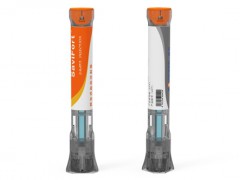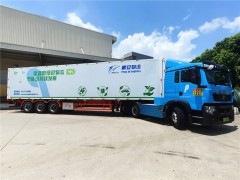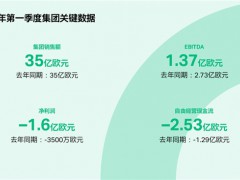據美國油價網2022年4月5日報道,盡管每桶100美元的油價激勵著加拿大艾伯塔省增加原油產量,但加拿大原油產量的增加卻受到了一個與美國頁巖地區相似的問題的阻礙——無法雇用到足夠的熟練工人。
在2020年疫情引起經濟衰退期間,加拿大石油行業失去了很多就業機會,在艾伯塔省許多此前被石油和天然氣行業雇傭的工人已經轉移到其他經濟領域尋求穩定。
加拿大能源承包商協會(CAOEC)主席兼首席執行官馬克·肖爾茨告訴CBC新聞記者朱莉婭·王:“加拿大石油工業依賴的工人已經轉移到其他行業——貿易、建筑—— 并在其他地方——無論是在加拿大西部,還是在加拿大中部和東部——找到了其他工作。
去年年底,CAOEC曾預計,今年加拿大將開鉆6457口新井,比去年計劃鉆取的5094口井增加了1363口。
這個代表加拿大在靠近井口作業的能源服務承包商的協會在其2021年第四季度和2022年鉆井預測中表示,今年加拿大石油行業的總就業崗位數量為34925個,比2021年增加了7280個工作崗位。 早在去年11月,CAOEC就表示CAOEC的預測面臨的最大風險將是勞動力限制。 CAOEC在11月的預測中表示,在經歷了多年的低迷之后,由于勞動力短缺,CAOEC成員在2021年面臨鉆井隊限制,阻礙了該行業滿足日益增長需求的能力。
今年,加拿大表示,由于西方進口商對大國石油的興趣減少,加拿大預計將增加其原油出口。 與此同時,由于油價居高不下,越來越多的加拿大生產商正在考慮增產。
李峻 編譯自 美國油價網
原文如下:
Canada’s Oil Boom Constrained By Workforce Shortage
While $100 oil incentivizes increased production in Canada’s crude-producing province of Alberta, the ramp-up of production is being held back by an issue all too familiar to the U.S. shale patch—there are not enough skilled workers to employ.
During the 2020 slump induced by the pandemic, the industry lost a lot of jobs, and many of the workers previously employed in oil and gas in Alberta have now moved on to other sectors of the economy, seeking stability, which is a rare and short-lived occurrence in today’s oil market.
“The pool that we relied on have moved to other occupations — trades, construction — and have found other employment elsewhere, whether in Western Canada, or have moved back home to jurisdictions that we had traditionally recruited from, like Central Canada and Eastern Canada,” Mark Scholz, president and CEO of the Canadian Association of Energy Contractors (CAOEC), told Julia Wong of CBC News.
At the end of last year, CAOEC had expected that a total of 6,457 wells were expected to be drilled in Canada in 2022, which would be an increase of 1,363 from the 5,094 wells planned for drilling in 2021.
The number of total jobs was to stand at 34,925 this year, an increase of 7,280 jobs in the Canadian oil patch compared to 2021, the association representing Canada’s energy service contractors operating close to the wellhead said in its Q4 2021 and 2022 Drilling Forecast. Back in November, CAOEC expected that the biggest risk to CAOEC’s forecast was going to be labor constraints. After years of lows, CAOEC members struggled in 2021 with crew constraints due to labor shortages, hampering the sector’s ability to meet growing demand, the association said in its forecast in November.
This year, Canada said it expects to boost its crude oil exports as Western importers turn away from oil. Meanwhile, as oil prices remain high, a growing number of Canadian producers are considering production increases.
免責聲明:本網轉載自其它媒體的文章及圖片,目的在于弘揚石化精神,傳遞更多石化信息,宣傳國家石化產業政策,展示國家石化產業形象,參與國際石化產業輿論競爭,提高國際石化產業話語權,并不代表本網贊同其觀點和對其真實性負責,在此我們謹向原作者和原媒體致以崇高敬意。如果您認為本站文章及圖片侵犯了您的版權,請與我們聯系,我們將第一時間刪除。







